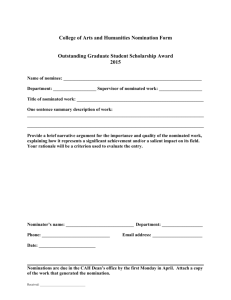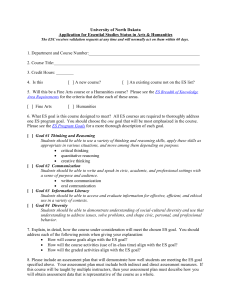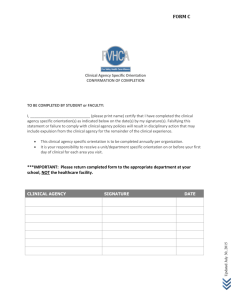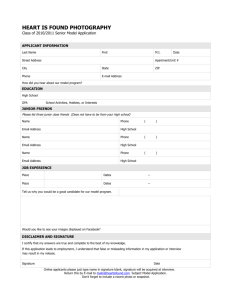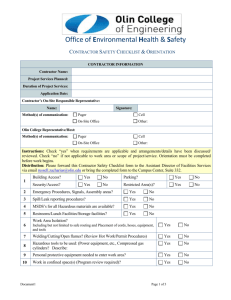Refurbishment Works - Contractors Flushing/Purging Regime
advertisement
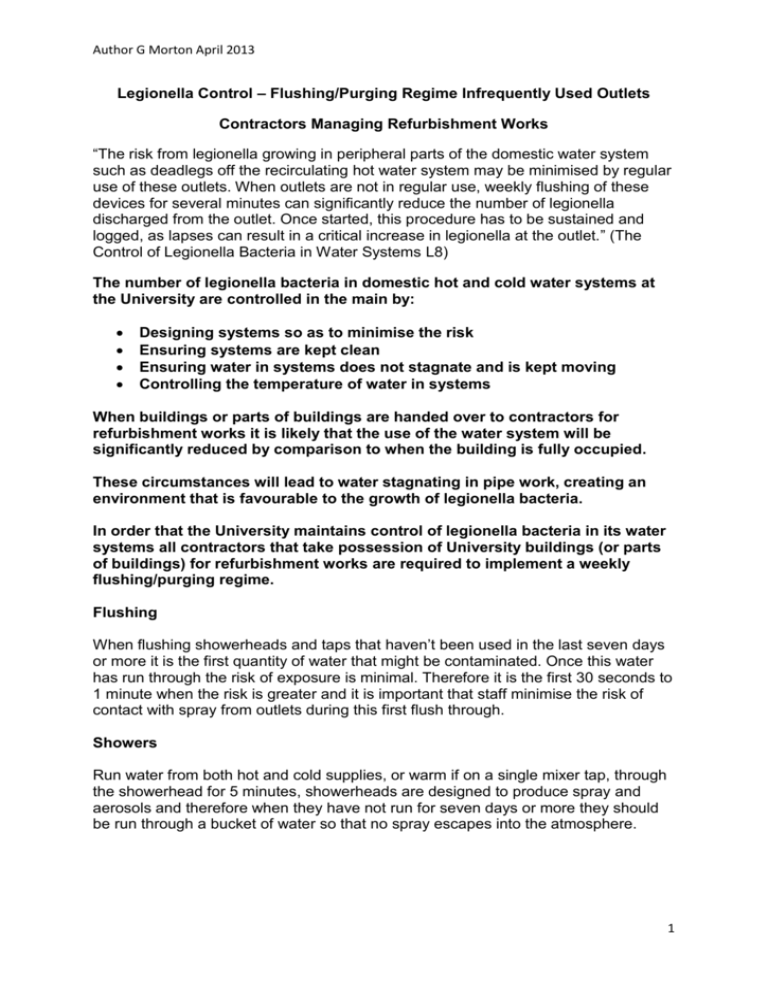
Author G Morton April 2013 Legionella Control – Flushing/Purging Regime Infrequently Used Outlets Contractors Managing Refurbishment Works “The risk from legionella growing in peripheral parts of the domestic water system such as deadlegs off the recirculating hot water system may be minimised by regular use of these outlets. When outlets are not in regular use, weekly flushing of these devices for several minutes can significantly reduce the number of legionella discharged from the outlet. Once started, this procedure has to be sustained and logged, as lapses can result in a critical increase in legionella at the outlet.” (The Control of Legionella Bacteria in Water Systems L8) The number of legionella bacteria in domestic hot and cold water systems at the University are controlled in the main by: Designing systems so as to minimise the risk Ensuring systems are kept clean Ensuring water in systems does not stagnate and is kept moving Controlling the temperature of water in systems When buildings or parts of buildings are handed over to contractors for refurbishment works it is likely that the use of the water system will be significantly reduced by comparison to when the building is fully occupied. These circumstances will lead to water stagnating in pipe work, creating an environment that is favourable to the growth of legionella bacteria. In order that the University maintains control of legionella bacteria in its water systems all contractors that take possession of University buildings (or parts of buildings) for refurbishment works are required to implement a weekly flushing/purging regime. Flushing When flushing showerheads and taps that haven’t been used in the last seven days or more it is the first quantity of water that might be contaminated. Once this water has run through the risk of exposure is minimal. Therefore it is the first 30 seconds to 1 minute when the risk is greater and it is important that staff minimise the risk of contact with spray from outlets during this first flush through. Showers Run water from both hot and cold supplies, or warm if on a single mixer tap, through the showerhead for 5 minutes, showerheads are designed to produce spray and aerosols and therefore when they have not run for seven days or more they should be run through a bucket of water so that no spray escapes into the atmosphere. 1 Author G Morton April 2013 Taps Run water from both hot and cold supplies, or warm if on a single mixer tap, through tap(s) for 5 minutes. The water should be run slowly to avoid spray for 1 minute and can then run faster for a further 4 minutes. Toilets Flush all toilets within the contract area at least once per week. Purging Where it is difficult to carry out weekly flushing, the outlet concerned needs to be purged to drain before the outlet is used normally. Therefore the following procedure should be utilised: Open the outlet gradually and slowly at first. It may be necessary to use additional piping to purge to drain if it is envisaged that spray may be produced. Run the outlet for 5 minutes before using the outlet. It is envisaged that this procedure will only apply to outlets that are in areas difficult to access regularly and that all of the accessible outlets will be flushed weekly. Record Keeping It is important that the flushing/purging regime is recorded using the log sheet in appendix 1, at the end of the contract copies of all log sheets must be handed to the University contact responsible for the project, they will then be electronically scanned and held on the contract file. Difficulties If difficulties or problems implementing the system are experienced then the contractor should inform their University contact. 2 Author G Morton April 2013 Contractors Flushing/Purging Regime Log Sheet Wash Hand Basins, Toilets and Shower Facilities All taps and showers must be ran for a minimum of 5 minutes once per week for the duration of the contract period, all toilets must be flushed once per week. Please complete the log sheet details below Location (s) list (Room No’s) : ................................................................................... Week Date Flushed/Purged Yes/No Nominated Contractor Signature Week Date Flushed/Purged Yes/No Nominated Contractor Signature Week Date Flushed/Purged Yes/No Nominated Contractor Signature Week Date Flushed/Purged Yes/No Nominated Contractor Signature Week Date Flushed/Purged Yes/No Nominated Contractor Signature Week Date Flushed/Purged Yes/No Nominated Contractor Signature Week Date Flushed/Purged Yes/No Nominated Contractor Signature 3 Author G Morton April 2013 Week Date Flushed/Purged Yes/No Nominated Contractor Signature Week Date Flushed/Purged Yes/No Nominated Contractor Signature Week Date Flushed/Purged Yes/No Nominated Contractor Signature Week Date Flushed/Purged Yes/No Nominated Contractor Signature Week Date Flushed/Purged Yes/No Nominated Contractor Signature Week Date Flushed/Purged Yes/No Nominated Contractor Signature Week Date Flushed/Purged Yes/No Week Date Flushed/Purged Yes/No Nominated Contractor Signature Flushed/Purged Yes/No Nominated Contractor Signature Week Date Nominated Contractor Signature 4

